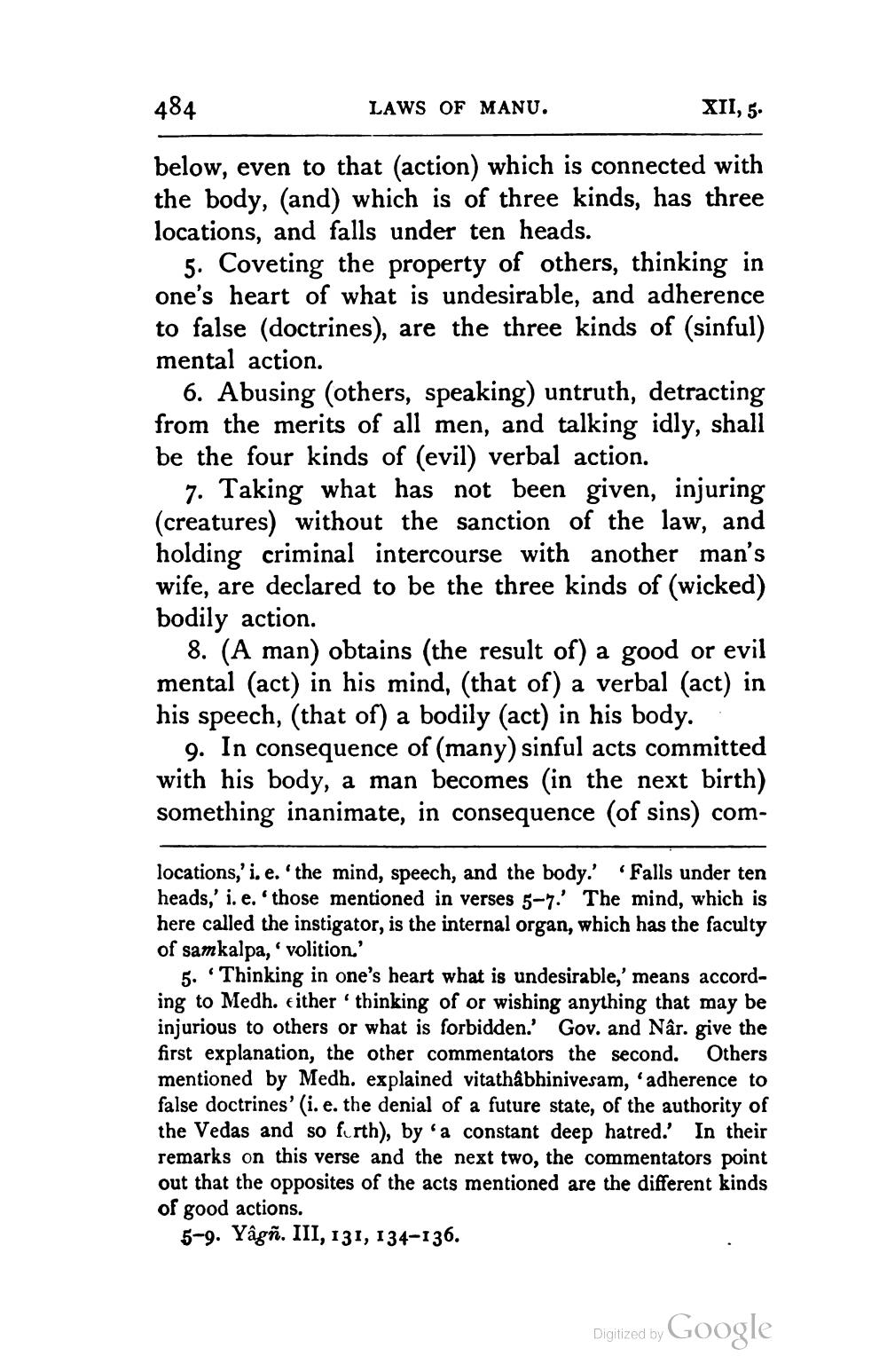________________
484
LAWS OF MANU.
XII, 5.
below, even to that (action) which is connected with the body, (and) which is of three kinds, has three locations, and falls under ten heads.
5. Coveting the property of others, thinking in one's heart of what is undesirable, and adherence to false (doctrines), are the three kinds of (sinful) mental action.
6. Abusing (others, speaking) untruth, detracting from the merits of all men, and talking idly, shall be the four kinds of (evil) verbal action.
7. Taking what has not been given, injuring (creatures) without the sanction of the law, and holding criminal intercourse with another man's wife, are declared to be the three kinds of (wicked) bodily action.
8. (A man) obtains (the result of) a good or evil mental (act) in his mind, (that of) a verbal (act) in his speech, (that of) a bodily (act) in his body.
9. In consequence of (many) sinful acts committed with his body, a man becomes in the next birth) something inanimate, in consequence (of sins) com
locations,' i.e. the mind, speech, and the body. Falls under ten heads,' i. e. 'those mentioned in verses 5-7.' The mind, which is here called the instigator, is the internal organ, which has the faculty of samkalpa,' volition.'
5. Thinking in one's heart what is undesirable,' means according to Medh. either thinking of or wishing anything that may be injurious to others or what is forbidden.' Gov. and Nâr. give the first explanation, the other commentators the second. Others mentioned by Medh. explained vitathâbhinivesam, 'adherence to false doctrines' i.e. the denial of a future state, of the authority of the Vedas and so furth), by 'a constant deep hatred. In their remarks on this verse and the next two, the commentators point out that the opposites of the acts mentioned are the different kinds of good actions.
5-9. Yâgñ. III, 131, 134-136.
Digitized by Google




